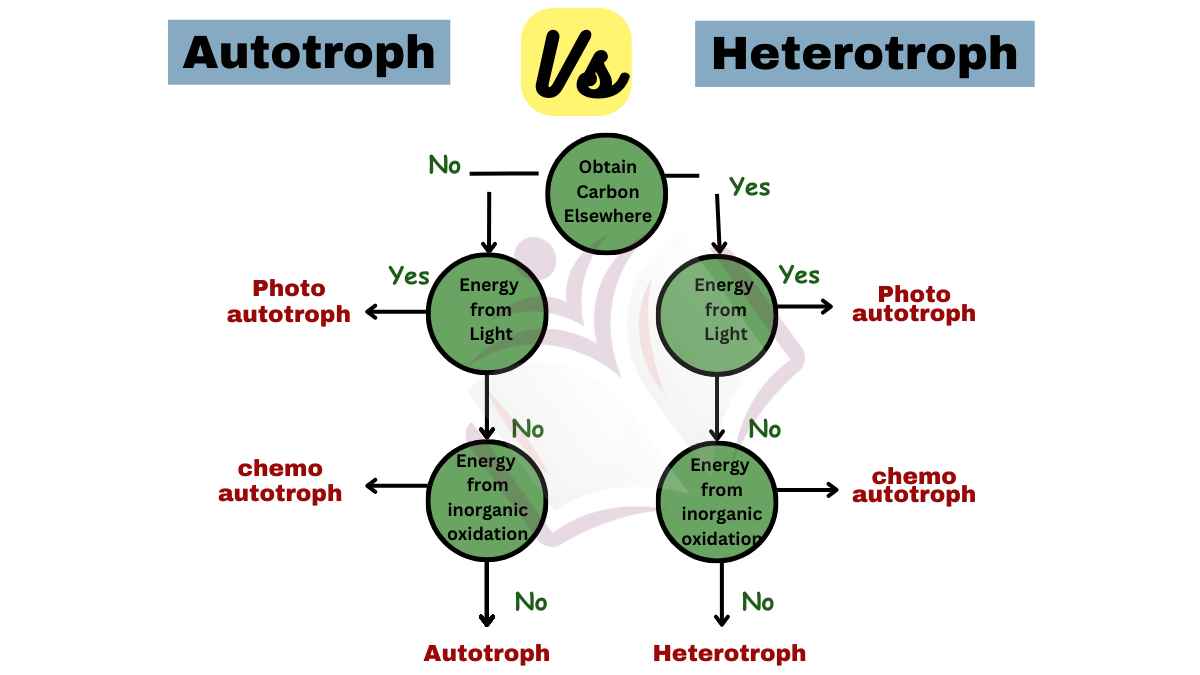The key difference between autotrophs and heterotrophs is that autotrophs produce their own food through photosynthesis or chemosynthesis, while heterotrophs rely on consuming organic matter to obtain their food.

What are Autotrophs?
Autotrophs are organisms that can produce their own food using energy from the environment, such as sunlight or inorganic substances, without relying on other organisms for nutrition.
They convert these raw materials into energy-rich organic molecules, such as glucose, which sustains their growth and survival. They are capable of sustaining themselves through photosynthesis or chemosynthesis.
Unlike heterotrophs, autotrophs do not rely on consuming other living organisms for nourishment, making them essential primary producers in ecosystems. Examples of autotrophs include plants, algae, and certain bacteria.
What are Heterotrophs?
Heterotrophs are organisms that cannot produce their own food and rely on consuming other organisms or organic matter for energy and nutrients. They are dependent on external sources for sustenance.
Examples of heterotrophs include animals, fungi, and some bacteria. Unlike autotrophs, which can produce their own food through photosynthesis or chemosynthesis, heterotrophs must consume pre-existing organic compounds to survive.
Autotrophs vs Heterotrophs
The key difference between Autotrophs and Heterotrophs is given below:
| Characteristic | Autotrophs | Heterotrophs |
| Definition | Organisms that can produce their own food. | Organisms that depend on other organisms for food. |
| Energy Source | Sunlight or inorganic compounds. | Organic compounds or other organisms’ tissues. |
| Carbon Source | Inorganic carbon dioxide (CO2). | Organic carbon compounds. |
| Examples | Plants, algae, some bacteria. | Animals, fungi, most bacteria. |
| Photosynthesis | Can perform photosynthesis to produce glucose. | Cannot perform photosynthesis. |
| Food Chain Role | Producers. | Consumers. |
| Nutritional Mode | Autotrophic. | Heterotrophic. |
| Energy Efficiency | High. | Lower than autotrophs. |
| Dependence | Not dependent on other organisms for food. | Dependent on other organisms for food. |
